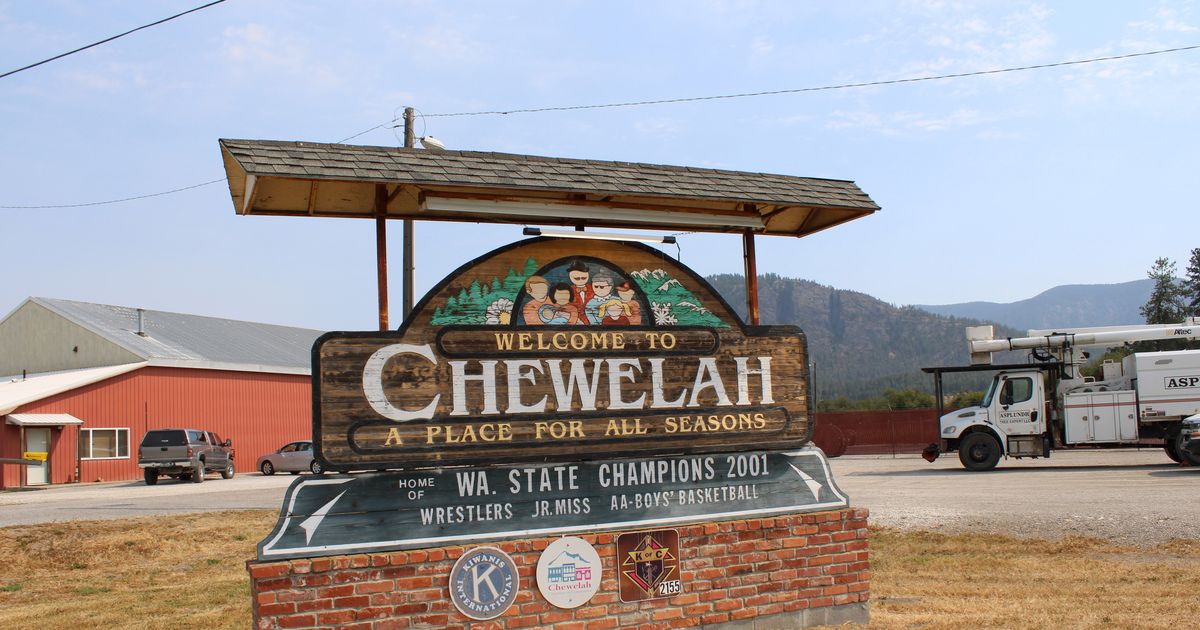Chewelah is currently working on a major water system upgrade that will help resolve a high level of a certain mineral in the water. This comes 50 years after its last upgrade.
Mayor Gregory McCunn said this water project has been in the works for the last 18 years and will include a new well and improved fire flows that will reach people outside of city limits to serve houses and businesses.
The new well – that they hope to drill sometime this fall – would also help solve the high level of manganese in the water that’s been a particular challenge in south parts of Chewelah.
“It’s just a mineral; you can go buy that as a supplement if you want to, you know, do it for health reasons, but when manganese and chlorine combine, they bind together, and that becomes a solid, and that settles in the water line,” McCunn said. “When that settles, it’s brown, so we have to flush our lines quarterly to keep the water clear because of that binding problem; the new wells don’t require chlorination, and so that will eventually eliminate that challenge and make things easier over time.”
Chewelah is divided into two water systems – Chewelah South and North – as seen through its last Consumer Confidence Report in 2022. Chewelah North’s water comes from two wells and doesn’t list manganese as an issue, according to the report.
But Chewelah South, run by three wells, reports manganese in the water that exceeds recommended levels.
Mike Frizzell, Chewelah public works director, said even though there are high levels of manganese in the water, consuming it isn’t a problem.
“You can’t get sick from it. It’s just an aesthetic issue – if there is a high concentration of it that builds up in the main or a water service, it’ll put a slug of, you know, dark reddish water through, but it’s not a harmful material,” Frizzell said.
Marcus Goodman, eastern regional manager for the Washington State Department of Health, said that Washington’s current standards for manganese are based on aesthetic concerns.
“In Washington, manganese is a secondary contaminant” Goodman said. “Secondary contaminants in drinking water are substances that can cause aesthetic or nuisance issues, but are generally not a health risk.”
But, he added that more information has become available on negative health effects from manganese, especially in infants, which the agency reports in its latest fact sheet on the substance.
Because of this, Washington is tracking new studies about manganese in drinking water that recommend infants avoid concentrations above 0.3mg/L.
“This is important because infant formula mixes often contain manganese, and the combination of manganese from the formula and the drinking water could reach levels of concern,” Goodman said.
Chuck Ritchie moved to Chewelah eight years ago and said since his arrival, he noticed the water issue right away and implemented water filters to help improve the water quality in his home.
With this new water project, he said he’s excited that Chewelah residents will have better water in their homes.
“When I first moved here, I was doing building maintenance, and I was in plumbing work for years, and I know how hard the water here is on plumbing systems,” Ritchie said.
“It’s gonna be great for people living here, because it’ll be easier on the plumbing and the water quality here. I’m pretty excited about the stuff that they’re doing.”
The city is awaiting a final funding timeline from the U.S. Department of Agriculture. The City Public Works Department also still plans to flush out the water from Oct. 7 to 10.
During flushing, it is possible some Chewelah residents have water, but it will look cloudy or rust-colored due to sediment accumulating on the bottom of the lines in-between flushing.
“People who have installed water softeners in their houses have seen a decreased amount – of the result of manganese, but … for the most part, flushing twice a year helps, helps a great deal, and we usually don’t see any issues until it’s almost ready, almost time to flush again,” Frizzell said.

